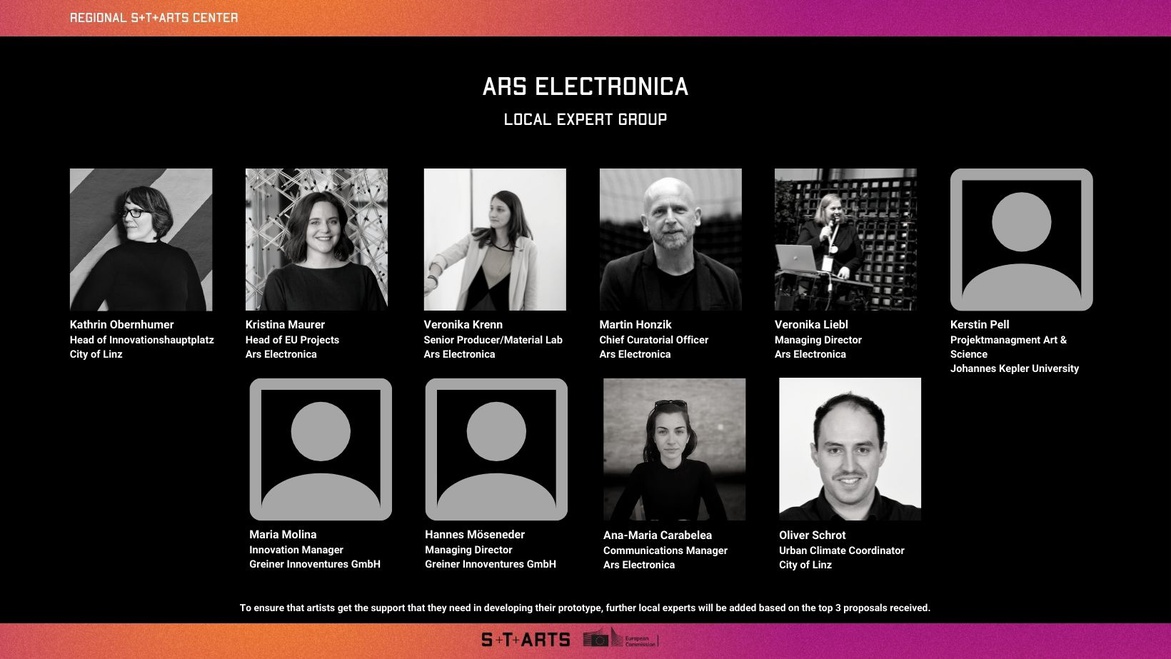S+T+ARTS Regional Centers | Repairing the Present | Open Call
Challenge nº2: Circular Futures
How might we catalyze circular futures by increasing social commitment to dealing with our energy & resource crisis?
Consortium Partner: Ars Electronica
EU Green Deal: GD3 Industrial strategy for a clean & circular economy
___photo_credit__ars_electronica___martin_hieslmair.jpg/ars_electronica1_ar)
Ars Electronica Exhibition Global Shift: Fragility and Beauty ESA / DLR / Ars Electronica Solutions (AT) / Photo Credit: Ars Electronica / Martin Hieslmair
 Problem Statement
Problem Statement
Economic added value alone is no longer enough to meet the innovation objectives of the 21st century. Climate change, resource scarcity and biodiversity loss require a drastic rethinking of our current production and consumption processes. Therefore, everyone’s contribution and cooperation are necessary: individuals together with public institutions, the research field, industry and policymakers.
 Keywords
Keywords
Circular economy, Citizen and multi-stakeholder involvement process, Art-driven participation & innovation, Resource & energy efficiency, Future of manufacturing
 Challenge Context
Challenge Context
Circular Futures addresses the urgency of innovative & arts-driven solutions and the need for growing social commitment to deal with our energy & resource crisis. Resources are not available in unlimited supply and their use is harmful to our planet’s climate. We now know that the way we design, engineer, manufacture, distribute, repair & recycle our materials is significantly impacting our climate goals. To address that we must take into account the materials used, as well as water and energy reduction throughout all stages of production & consumption.
The EU Green Deal introduced a clean & circular economy as a key driver on the roadmap to sustainable economies. Implementing a circular economy in the EU could create 180, 000 extra jobs by 2030 and 2 million jobs in the longer term. But to adopt circular economies throughout Europe’s regions, we need stronger participation & commitment from everyone, from the civil society, companies, to research organizations and the public sector.
Upper Austria and the region around Linz, like no other region in Europe, condenses the entire value chain of the plastics industry. This determined the industry, research institutes and decision-makers to commit to creating more sustainable and environmentally friendly systems of plastic production and establish cross-industry research & learning networks.Fellowship candidates will have the opportunity to work with scientists from the Johannes Kepler University in research areas of polymer materials & technologies, Greiner - one of the world’s leading suppliers of plastics and foam solutions - as well as with the climate and innovation offices of the City of Linz.
 Fellowship Characteristics: network, opportunities and expectations
Fellowship Characteristics: network, opportunities and expectations
The fellowship will provide the opportunity to set a stepping stone towards circularity! Selected artists will have the chance to work with material manufacturers (eg. plastics producers) and recycling companies in Upper Austria to address necessary changes and develop new ideas. This ecosystem will be a unique setting allowing the artists to get access to infrastructure, expertise and networks relevant for their practice, as well as the (open-ended) outcome of the fellowship. We aim to involve multiple stakeholders in the process, from citizens and the public sector to research and industry actors, to identify the overall needs and increase collective commitment. Selected artists will have the opportunity to lead co-ideation & participatory events (such as workshops, roundtables, etc.) with the support of Ars Electronica. Artists will be expected to engage in a multi-stakeholder engagement process and produce a prototype as an output from this process as well as deliver a methodology report of the co-creation and circular economy process. The fellowship is hosted by Ars Electronica in Linz Austria. Participants are expected to be present in Linz regularly and should include the travel expenses in the budget plans.
 Jury Day(s)
Jury Day(s)
Jury day will be: digital
Jury day will be held on: 14th January 2022
 Other Stakeholders and Partners
Other Stakeholders and Partners
LIT Factory: The LIT Factory at the Linz Institute of Technology (LIT) located at the Johannes Kepler University (JKU) in Linz is a networked factory for education, learning and researching smart polymer processing and digitalization
Circular Economy Platform Austria
 Useful links
Useful links
Circular Economy Lecture @JKU (Johannes Kepler University) (German language)
Livestream on Circular Economy in Upper Austria
Remix el Barrio: STARTS Prize Winner 2021 and international lighthouse project in the field of circular economy and food waste
 Local Expert Group
Local Expert Group

Previous ChallengeNext Challenge
